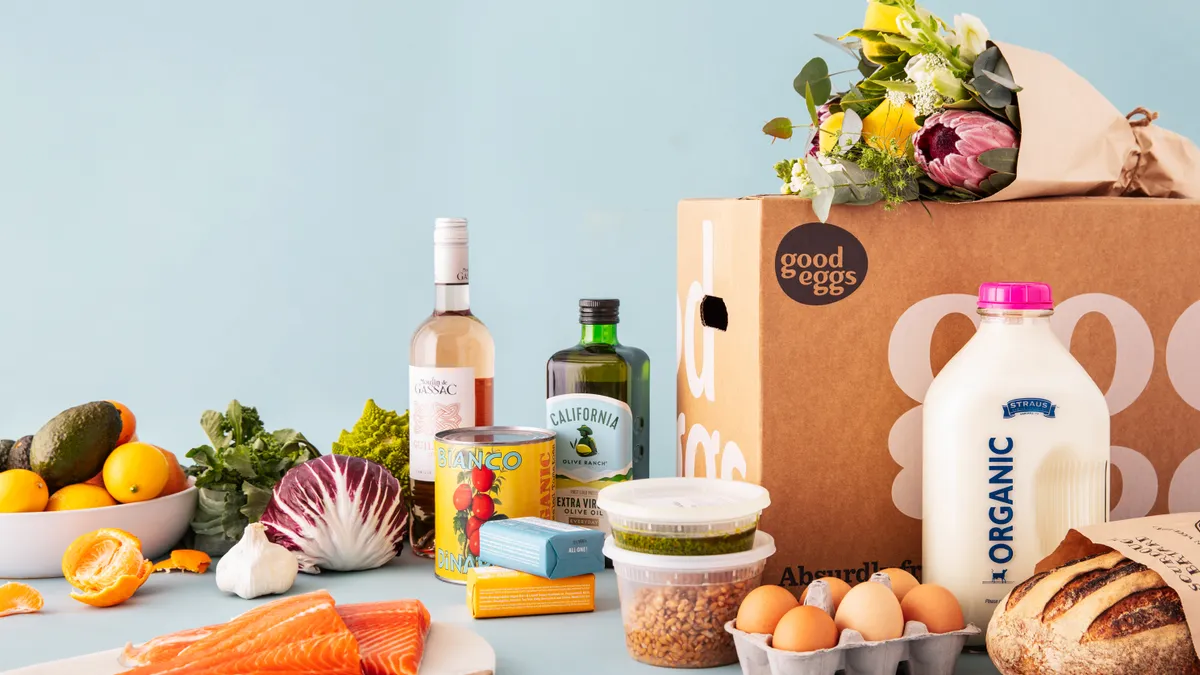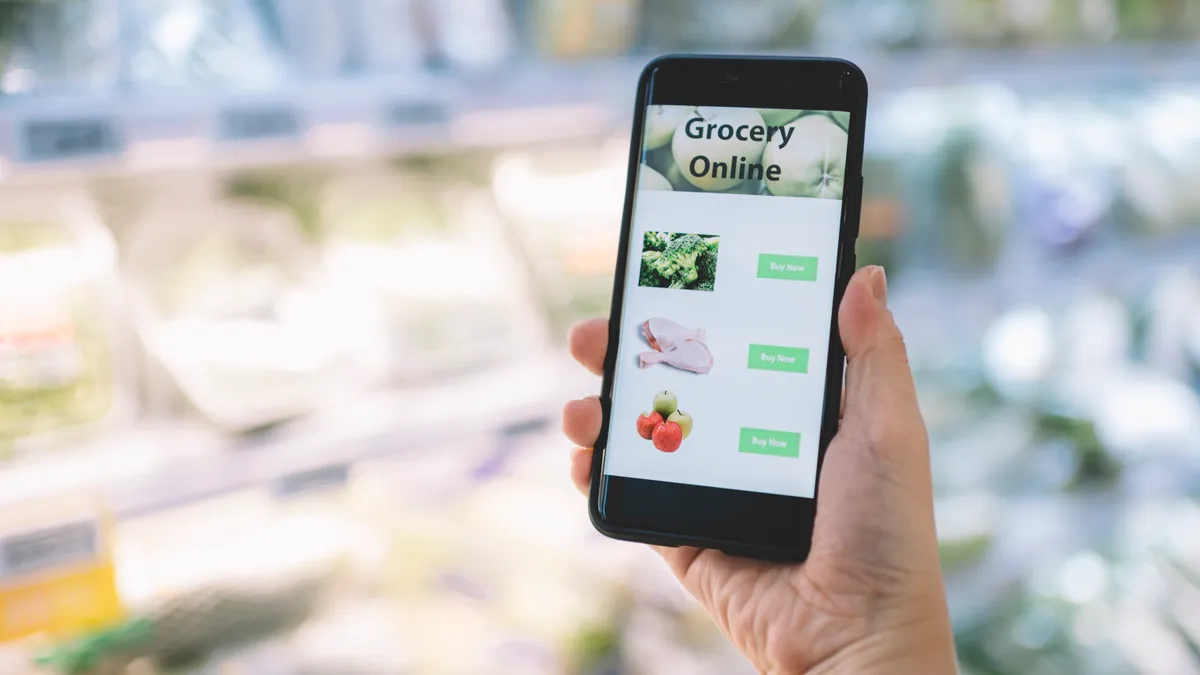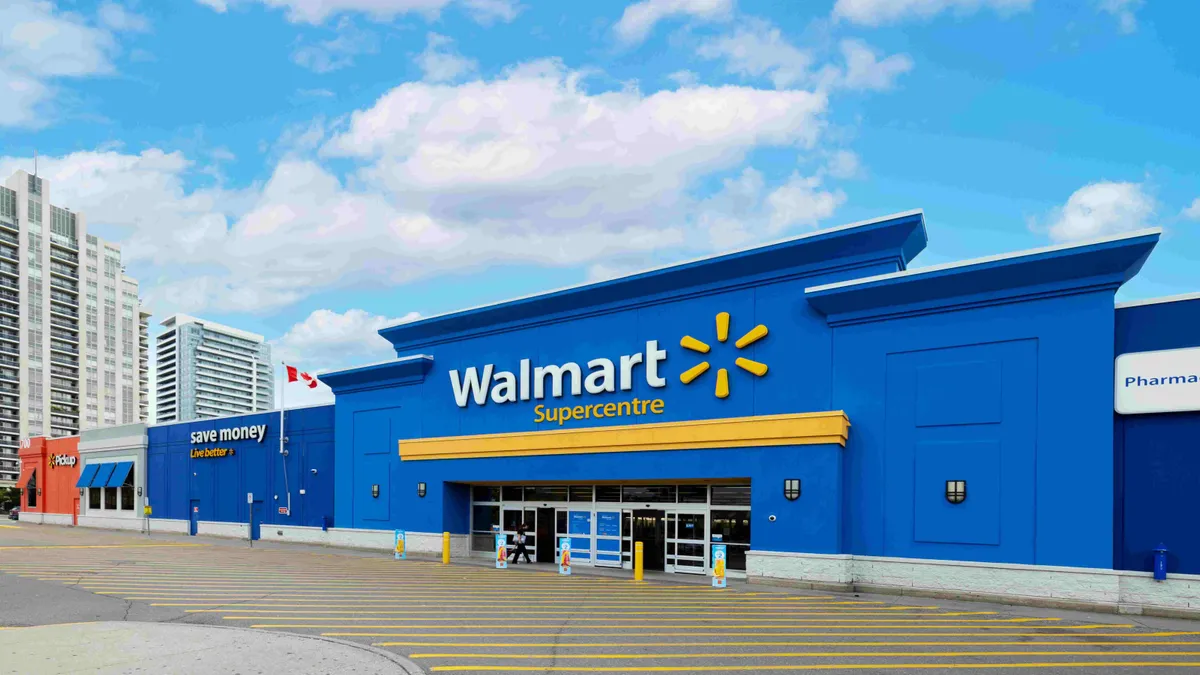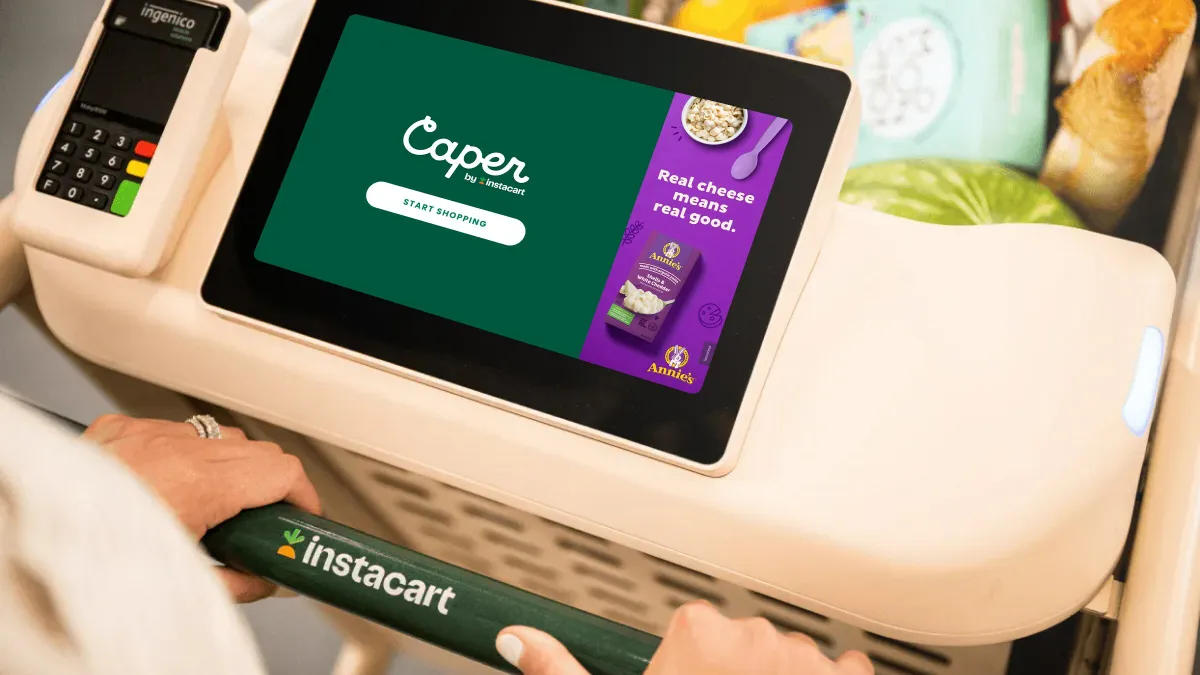As food delivery grows, so too does the scrutiny that companies face over all the packaging they use to keep products fresh, convenient and blemish-free. Meal kit companies, in particular, have faced backlash from consumers over all the boxes, ice packs and plastic wrap they use to get kitchen-ready ingredients to their customers.
Most major grocers haven't broadcast their sustainability efforts in e-commerce, but Good Eggs sees the issue as one that resonates with its shoppers. Today, the California e-grocer announced The Packaging Project, an initiative that enlists customers in its push toward 100% recyclable, reusable and sustainable packaging by the end of 2019, the retailer told Grocery Dive in an exclusive interview.
The Packaging Project, which will launch next month and last until the end of this year, will give customers two options. When checking out, they can choose to opt out of deliveries made during Good Eggs’ peak delivery times, which will cut out time spent in San Francisco Bay Area traffic. If the customer does choose to have their groceries delivered during peak hours, they will be charged an additional $3.99 fee, which will go toward funding the infrastructure for its East Bay warehouse that will sanitize and re-freeze its ice packs. Good Eggs has a $30 order minimum and charges a $7.99 fee on orders up to $60. For orders over $60, the base fee is waived.
One of the biggest headaches for the retailer and its customers are ice packs, which are not recyclable or reusable and often end up in landfills.
"Packaging is a top two concern for our customers," said Hall. “The main area of packaging we haven't resolved is ice packs. We've done a great job with our program on external boxes, compostable bags, and all our foods and items inside the box are fully recyclable items. So it's definitely the last piece of it and we've been thinking about how to do this in a way that is consistent with our values and good for the business."
Meal kit companies have tried to confront the ice pack conundrum. HelloFresh recommends cutting open the bags and pouring the goo down the drain, which can clog plumbing systems. Blue Apron, on the other hand, suggests pouring the goo in the trash and recycling the plastic exterior.
For its part, Good Eggs plans to roll out thicker, reusable ice packs in November. Customers can leave the packs on their front porch or garage the day their next order is set for delivery, and drivers will pick them up as they drop off the new order.
"We can just actually have a driver trained to say, 'If you want we can grab the ice packs back from you right now, we’ll wait two minutes,'" said Hall.
Although the new service provides clear eco benefits, shoppers may not be thrilled with the extra costs of getting their products delivered during peak hours. Grocers across the country have struggled to pass along the high costs of e-commerce along to shoppers. According to Capgemini, only 1% of consumers surveyed are willing to cover the full cost of delivery.
Hall, however, believes Good Eggs' many eco-aware customers will appreciate the company's openness.
"I actually think this is more of a transparent approach to pricing," Hall said. "There are markups on groceries, there are fees and tips. So actually when you add the living wage and packaging fees up, which are both things people care about, still that aggregate fee is way less than comparable online grocery delivery ... It's just going to something that they actually care about."
In addition to finding a solution to consumer concerns, reusing and recycling ice packs and boxes can save the company money as well. Sustainability initiatives, Hall noted, are often costly up front and take a certain level of consumer adoption before they pay off.
"I think in the long term these projects should be good for customer experience, good for business and good for the environment," Hall said.
Ice packs are the last step for the retailer to reach its goal to use 100% reusable, recyclable and compostable packaging. Good Eggs currently uses compostable bags for produce and recyclable packaging for many products, Hall noted. Last year, the company reused more than 100,000 boxes.
Good Eggs isn’t the first in the industry to boost its sustainability efforts to reduce packaging and waste. San Francisco-based Farmstead has cut down on its packaging and uses reusable ice packs and milk bottles. The retailer has also used artificial intelligence and algorithms to stock only the right amount of products to reduce waste and map out eco-friendly delivery routes.
In 2017, Los Angeles-based Thrive Market announced it was going zero waste with plans to divert more than 90% of waste to recycling or reuse. In 2018, HelloFresh committed to using more sustainable packaging, replacing its polystyrene foam package liners with a more sustainable option that can be recycled. Purple Carrot also changed its packaging to 100% recyclable that same year. A few weeks ago, Otter Products launched a line of reusable boxes with built-in insulation, which removes the need for ice packs.
Traditional grocers are rolling out more sustainability programs, too. Albertsons recently debuted a line of eco-friendly, plant-based compostable materials under its Open Nature brand. Kroger’s Zero Hunger, Zero Waste plan includes eliminating plastic bags across its banners, and Trader Joe’s has pledged to reduce plastic packaging in its stores. Aldi also recently announced a plan to make all of its packaging reusable, recyclable or compostable by 2025.





















